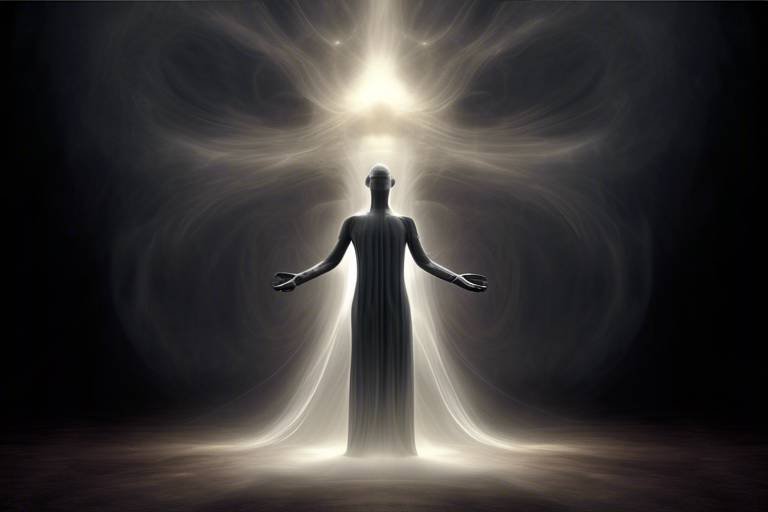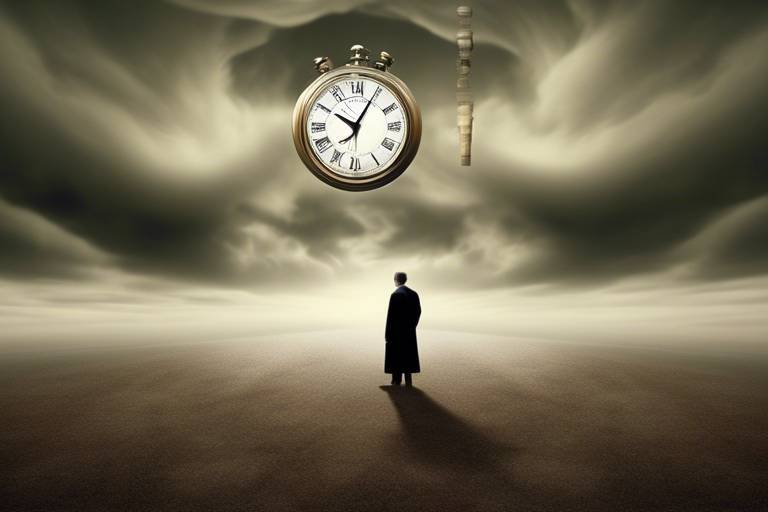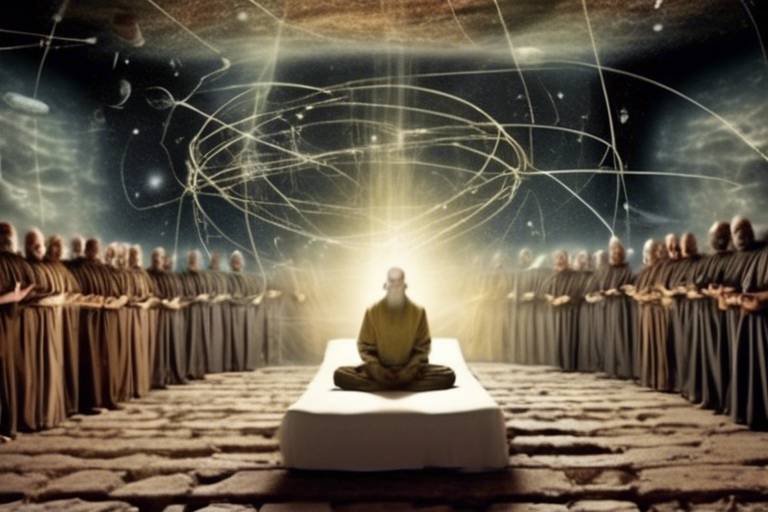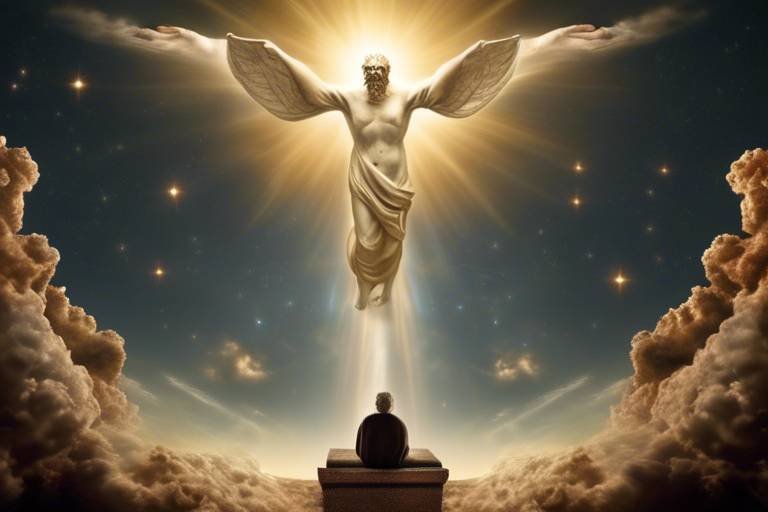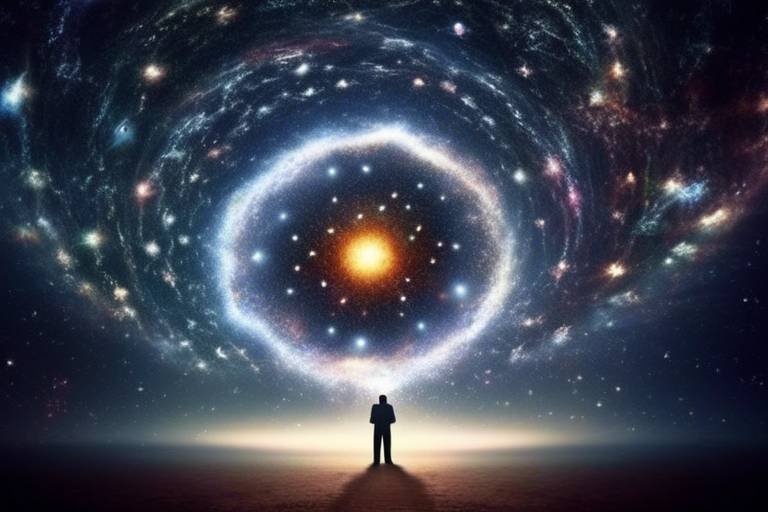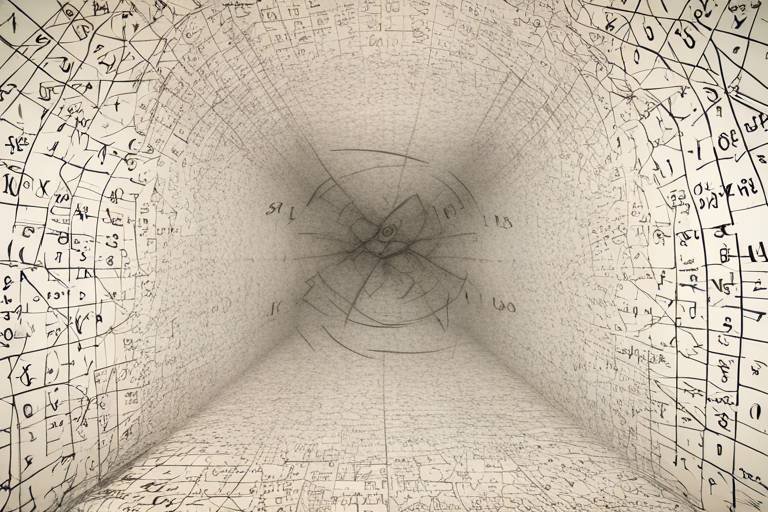Do We Have a Soul? Unveiling the Metaphysical Aspect
The question of whether we have a soul has intrigued humanity for centuries, sparking debates that traverse the realms of philosophy, science, and spirituality. It’s a profound inquiry that delves into the very essence of our existence, prompting us to consider what it means to be truly alive. Are we merely a collection of biological processes, or is there something more—an ethereal essence that transcends our physical form? This article embarks on a journey to explore the multifaceted dimensions of the soul, shedding light on various perspectives that seek to unravel the mysteries of our being.
Philosophers have long engaged in a rich tapestry of discussions surrounding the nature of the soul. From Plato to Descartes, these thinkers have offered diverse interpretations that shape our understanding of consciousness, identity, and existence beyond the physical body. For instance, Plato viewed the soul as an immortal entity, existing prior to and after the physical life, while Aristotle saw it as the essence of living beings—integral to their identity. This philosophical discourse raises intriguing questions: If the soul exists, what is its nature? Is it separate from the body, or is it intertwined with our physical existence?
As we transition into modern times, advancements in neuroscience and psychology have provided groundbreaking insights into consciousness. These scientific revelations prompt us to ponder the relationship between the brain and the soul. Can consciousness exist independently of the brain, or is it merely a byproduct of our neural processes?
The mind-body problem presents a captivating challenge in understanding how mental states relate to physical processes. This conundrum not only questions the existence of the soul but also its connection to the brain. Imagine the brain as a complex orchestra; each instrument (neuron) plays a vital role in creating a symphony (consciousness). But what if the conductor (the soul) exists beyond this orchestra? This analogy captures the essence of the debate, as we grapple with how our thoughts and emotions correlate with the physical workings of our brain.
The ongoing debate between dualism and materialism significantly influences contemporary discussions about the soul. Dualism posits a separation between mind and body, suggesting that the soul exists independently of our physical form. In contrast, materialism argues for a purely physical existence, asserting that everything, including consciousness, is a result of physical processes. This dichotomy raises essential questions about our understanding of reality and the nature of existence.
The relationship between consciousness and free will is pivotal in the debate over the soul. If the soul exists and influences our thoughts and decisions, then what does that mean for our autonomy and moral responsibility? Are we merely puppets of our biological makeup, or do we possess the agency to shape our destinies? These queries challenge our perceptions of self and accountability.
Various spiritual traditions provide unique insights into the nature of the soul, often viewing it as an eternal essence that transcends physical existence. In this light, the soul is not just a concept but a vital aspect of our being that connects us to a higher reality. Whether through meditation, prayer, or rituals, many seek to nurture this connection, believing that understanding the soul can lead to personal transformation and enlightenment.
Different religions offer distinct beliefs about the soul, its origin, purpose, and destiny, enriching our understanding of this profound concept across cultures and faiths. For example, Christianity often regards the soul as a divine creation with a unique purpose, while Eastern philosophies like Hinduism and Buddhism emphasize reincarnation and the interconnectedness of all beings. These varied perspectives highlight the complexities of the soul and its significance in human experience.
Eastern traditions, such as Hinduism and Buddhism, present perspectives on the soul that emphasize reincarnation, karma, and the interconnectedness of all beings. In Hinduism, the soul (Atman) is seen as eternal and part of a larger cosmic reality (Brahman), while Buddhism teaches that the concept of a permanent soul is an illusion, advocating for the understanding of Anatta (non-self). These teachings encourage followers to seek enlightenment and liberation from the cycle of rebirth.
In Western religions, the soul is often perceived as a divine creation imbued with purpose. This view leads to discussions about salvation, afterlife, and moral conduct. For instance, Christianity emphasizes the soul's journey toward salvation, while Judaism explores the soul's connection to God and ethical living. These interpretations foster a sense of moral responsibility and purpose in life, urging individuals to reflect on their actions and their impact on their soul's journey.
Modern spiritual movements often blend traditional beliefs with contemporary ideas, fostering a holistic understanding of the soul. This evolving perspective emphasizes personal growth, healing, and connection to the universe. Many individuals today seek to explore their spiritual paths, utilizing practices such as yoga, mindfulness, and holistic healing to nurture their souls. In this way, the quest for understanding the soul becomes not just an intellectual pursuit but a deeply personal journey of self-discovery and connection.
- What is the soul? The soul is often considered the essence of a person, encompassing consciousness, identity, and moral character.
- Do all religions believe in a soul? While many religions have concepts of the soul, beliefs vary widely regarding its nature, purpose, and destiny.
- Can science explain the soul? Science primarily studies the brain and consciousness, but the existence of the soul remains a philosophical and spiritual question.
- How can I connect with my soul? Practices like meditation, mindfulness, and self-reflection can help individuals explore and connect with their inner selves.

The Philosophical Perspectives on the Soul
Philosophers have long engaged in a deep and captivating exploration of the concept of the soul, offering a plethora of interpretations that significantly shape our understanding of consciousness, identity, and existence beyond the physical realm. The inquiry into the soul is not merely an academic exercise; it is a profound quest that touches upon the very essence of what it means to be human. So, what exactly is the soul? Is it a tangible entity, or is it something more abstract, a mere construct of our minds? These questions have sparked debates that span centuries and cultures.
One of the most notable perspectives comes from the ancient Greeks, particularly Plato, who viewed the soul as the true essence of a person, distinct from the body. In his famous allegory of the cave, he illustrated how the physical world is merely a shadow of the true reality, which is the realm of forms. According to Plato, the soul is immortal and undergoes a cycle of rebirths, learning and evolving through each incarnation. This idea resonates with many, as it suggests that our experiences and actions have a purpose that transcends our physical existence.
In stark contrast, Aristotle, a student of Plato, proposed a different view. He argued that the soul is not separate from the body but rather a vital force that animates it. For Aristotle, the soul is the essence of a living being, encompassing not just rational thought but also emotions and desires. This perspective invites us to consider the interconnectedness of our mental and physical states, challenging the notion of a disembodied soul and emphasizing the importance of our corporeal experiences.
Fast forward to modern philosophy, where thinkers like René Descartes introduced the concept of dualism. He famously stated, "Cogito, ergo sum" (I think, therefore I am), positing that the mind (or soul) and body are distinct entities. This dualistic view has profound implications, suggesting that our mental states can exist independently of our physical bodies. However, this raises a critical question: if the soul is separate, how does it interact with the physical world? Descartes' dilemma continues to fuel discussions among contemporary philosophers, as they seek to reconcile the apparent divide between the mental and the physical.
Moreover, the advent of existentialism brought forth new questions about the purpose and nature of the soul. Thinkers like Jean-Paul Sartre argued that existence precedes essence, meaning that we are not born with a predetermined purpose. Instead, we must create our own meaning and identity through our choices and actions. This perspective places a significant burden of responsibility on individuals, suggesting that we are the architects of our own souls.
To further enrich our understanding, let’s consider some key philosophical perspectives on the soul:
- Plato: The soul is immortal and distinct from the body, undergoing cycles of rebirth.
- Aristotle: The soul is the essence of a living being, inseparable from the body.
- Descartes: Advocated for dualism, asserting that the mind and body are separate entities.
- Sartre: Proposed that individuals must create their own essence and meaning through choices.
In summary, the philosophical perspectives on the soul are as diverse as they are profound. From the ancient musings of Plato and Aristotle to the modern existentialist views, each framework offers a unique lens through which we can examine our own existence. As we ponder these ideas, we may find ourselves asking: What does it mean to have a soul? How does our understanding of the soul influence our lives? These questions not only enrich our philosophical discourse but also invite us to reflect on our own beliefs and experiences.
- What is the soul according to philosophy? The soul is often viewed as the essence of a person, encompassing consciousness and identity, and is debated in terms of its relationship with the body.
- Is the soul immortal? Many philosophical traditions, like those of Plato, argue that the soul is immortal and undergoes cycles of rebirth.
- How do modern philosophers view the soul? Modern philosophers explore various perspectives, including dualism and existentialism, questioning the nature and purpose of the soul.

Scientific Insights into Consciousness
In recent years, the intersection of science and philosophy has sparked a renewed interest in understanding consciousness and its implications for the concept of the soul. As researchers delve deeper into the complexities of the human mind, they are uncovering layers of consciousness that challenge long-held beliefs about our existence. The question arises: can consciousness exist independently of the physical body? This inquiry leads us into the fascinating realm of neuroscience and psychology, where groundbreaking discoveries are reshaping our understanding of what it means to be human.
Neuroscience has made significant strides in mapping the brain and understanding how different regions contribute to our thoughts, emotions, and behaviors. However, the mind-body problem remains a pivotal issue. How do our mental states relate to the physical processes occurring in our brains? This conundrum raises profound questions about the nature of consciousness and whether it can be reduced to mere biological functions. Some argue that our thoughts and feelings are simply byproducts of neural activity, while others contend that there is something more—an essence that transcends the physical.
The mind-body problem is a philosophical dilemma that has persisted for centuries. It questions the relationship between our mental experiences and the physical processes of the brain. For instance, when we feel joy, is it merely a chemical reaction in our brains, or does it signify a deeper, soulful experience? Neuroscientists are actively investigating this relationship through various studies, using advanced imaging techniques to observe brain activity during moments of consciousness. Yet, despite these advancements, the essence of what constitutes consciousness remains elusive.
The debate between dualism and materialism is central to discussions about the soul and consciousness. Dualism posits that the mind and body are distinct entities, suggesting that consciousness exists separately from the physical realm. In contrast, materialism argues that everything, including consciousness, can be explained through physical processes. This dichotomy influences contemporary discussions about the soul, as each perspective offers unique insights into our understanding of existence.
The relationship between consciousness and free will is another critical aspect of this discourse. If consciousness is merely a product of brain activity, what does that mean for our autonomy and moral responsibility? Are our decisions truly our own, or are they predetermined by the intricate workings of our brains? These questions invite us to reflect on the nature of choice and agency in our lives. The implications of this inquiry extend beyond philosophy, influencing fields such as psychology, ethics, and even law.
As we navigate these scientific insights into consciousness, it becomes evident that understanding the soul requires a multidisciplinary approach. The convergence of neuroscience, philosophy, and spirituality offers a richer perspective on our existence. By examining the complexities of consciousness, we can begin to unravel the mysteries of the soul and its role in our lives.
- What is consciousness? Consciousness refers to the state of being aware of and able to think about one's own existence, thoughts, and surroundings.
- Can consciousness exist without the brain? This is a subject of ongoing debate; some argue that consciousness is inherently tied to brain activity, while others believe it may transcend physical existence.
- What is the mind-body problem? The mind-body problem explores the relationship between mental states and physical processes, questioning how they interact and influence each other.
- What are dualism and materialism? Dualism posits a separation between mind and body, while materialism asserts that everything, including consciousness, is a result of physical processes.
- How does this impact our understanding of free will? If consciousness is a product of brain activity, it raises questions about the nature of choice and whether we truly have control over our decisions.

Neuroscience and the Mind-Body Problem
The mind-body problem is one of the most intriguing puzzles in philosophy and neuroscience, posing the question: how do our mental states relate to our physical existence? Imagine your mind as a vibrant orchestra, playing a symphony of thoughts, emotions, and consciousness, while your body is the stage on which this music unfolds. But what happens when the music stops? Does the stage remain, or does it vanish along with the melody? This metaphor captures the essence of the mind-body problem, where the relationship between our thoughts and our physical selves remains a subject of intense debate.
Neuroscience has made remarkable strides in understanding the brain's functions, revealing how neural connections and brain activity correlate with our thoughts and feelings. However, this raises a fundamental question: if our consciousness is merely a product of physical processes in the brain, can we truly say that we possess a soul? Or is there a deeper, more profound essence that exists beyond the neurons firing in our skulls?
To delve deeper into this conundrum, we can explore two primary perspectives that have emerged in this debate: dualism and materialism. Dualism posits that the mind and body are distinct entities, suggesting that our consciousness can exist independently of our physical form. On the other hand, materialism argues that everything about our mental experiences can be explained through physical processes alone, leaving little room for the existence of a soul. This dichotomy creates a fascinating landscape for discussion.
| Perspective | Key Ideas |
|---|---|
| Dualism | Mind and body are separate; consciousness exists independently. |
| Materialism | All mental states are the result of physical processes; no independent soul. |
The implications of these perspectives extend far beyond theoretical discussions. They touch on critical aspects of our lives, such as free will and moral responsibility. If we are merely biological machines, do we truly have the autonomy to make choices, or are we simply following a predetermined path dictated by our brain's wiring? This question challenges our understanding of accountability and ethics, as it suggests that our actions might not be entirely our own.
In conclusion, the mind-body problem continues to captivate thinkers across disciplines, as neuroscience strives to unravel the mysteries of consciousness. The debate between dualism and materialism not only shapes our understanding of the soul but also influences how we perceive ourselves and our place in the universe. As we seek answers, perhaps the most profound realization is that the journey itself—filled with questions and explorations—may be just as significant as the answers we find.
- What is the mind-body problem? The mind-body problem is a philosophical question that explores the relationship between mental states and physical processes in the body.
- What are dualism and materialism? Dualism suggests that the mind and body are separate, while materialism argues that all mental states arise from physical processes.
- How does neuroscience relate to the soul? Neuroscience investigates brain functions and consciousness, raising questions about the existence of a soul beyond physical processes.

Dualism vs. Materialism
When we dive into the debate of dualism versus materialism, we're really exploring two fundamentally different ways of understanding our existence. Dualism, famously championed by philosophers like René Descartes, posits that the mind and body are separate entities. This perspective suggests that our consciousness, or soul, exists independently of our physical form. Imagine your mind as a pilot steering a ship (your body); even if the ship sinks, the pilot can still navigate through the vast ocean of existence. This notion implies that there is something beyond our physical selves, something that transcends the tangible world.
On the flip side, we have materialism, which argues that everything about us, including our thoughts, emotions, and consciousness, can be explained purely through physical processes. According to this view, our brains are like complex computers, processing information and generating what we perceive as consciousness. When the hardware (our brain) ceases to function, so too does our consciousness. It's a perspective that can feel quite grounding, as it aligns with our understanding of the physical world, but it also raises profound questions about what happens to our essence when our bodies fail.
The implications of these two viewpoints extend far beyond mere theory; they influence our understanding of free will, morality, and even the afterlife. For instance, if dualism holds true, we might argue that our choices stem from a non-physical source, granting us a sense of autonomy that transcends biological determinism. Conversely, if materialism is correct, our decisions could be seen as the result of neurochemical reactions, leaving little room for the concept of free will as we traditionally understand it.
To illustrate the differences between dualism and materialism, consider the following table:
| Aspect | Dualism | Materialism |
|---|---|---|
| Nature of Existence | Mind and body are separate | Mind is a product of physical processes |
| Consciousness | Exists independently | Dependent on brain function |
| Free Will | Possible and significant | Limited by biological factors |
| Afterlife | Possibility of existence beyond death | Ceases to exist with physical death |
Ultimately, the debate between dualism and materialism is not just an academic exercise; it resonates deeply with our personal beliefs and experiences. Whether we lean towards the idea of a soul that survives beyond our physical bodies or embrace a more scientific understanding of consciousness, these perspectives shape how we view life, death, and everything in between. So, which side do you resonate with more? Are you drawn to the mystery and transcendence of dualism, or do you find comfort in the tangible nature of materialism? The answer may reveal more about your own beliefs than you realize.

Implications for Free Will
The relationship between consciousness and free will is a compelling topic that has intrigued philosophers, scientists, and spiritual thinkers for centuries. At its core, the question revolves around whether we are truly the architects of our own actions or if our choices are predetermined by external factors—like biology, environment, or even fate. If we consider the idea of the soul, this inquiry takes on an additional layer of complexity. Does the existence of a soul imply that we possess free will, or does it suggest that our choices are somehow guided by a higher power?
Many argue that the soul embodies our essence, our unique identity that transcends the physical realm. If this is the case, how does the soul interact with our decision-making processes? For instance, if our soul is eternal and divine, does it grant us the autonomy to choose our paths, or is it merely a spectator in the grand scheme of life? This leads us to ponder whether our decisions are a reflection of our soul's true desires or a product of our physical existence.
To delve deeper, let's consider the implications of two major philosophical perspectives: determinism and libertarianism. Determinism posits that every event, including human actions, is determined by preceding events in accordance with the laws of nature. In this view, the soul may be seen as a byproduct of physical processes, suggesting that our choices are not genuinely free but rather the result of a chain of cause and effect.
On the other hand, libertarianism argues that individuals have the capacity to make free choices that are not predetermined. This perspective aligns closely with the idea of a soul that is not bound by physical limitations, allowing for genuine autonomy and moral responsibility. If our soul is indeed capable of influencing our actions, it raises profound questions about accountability. Are we responsible for our choices if they are influenced by an eternal essence that exists beyond our physical existence?
Additionally, the implications for free will extend into the realm of morality. If we accept that our soul plays a role in our decision-making, we must consider how this affects our understanding of right and wrong. Are moral judgments a reflection of our physical experiences, or do they stem from a deeper, spiritual understanding that is guided by our soul? This intersection of consciousness, morality, and free will invites us to explore the very fabric of our existence.
As we navigate the complexities of free will, it's essential to recognize that the dialogue surrounding the soul and autonomy is ongoing. Philosophers and scientists alike continue to explore the nuances of this relationship, often leading to more questions than answers. Ultimately, the implications for free will challenge us to reflect on our own beliefs about existence, identity, and the choices we make every day.
- What is the soul? The soul is often considered the essence of a person, encompassing consciousness, identity, and spirituality.
- Do we have free will? The debate continues; some believe our choices are influenced by a higher power or our soul, while others argue they are determined by external factors.
- How do different religions view the soul? Various religions offer unique perspectives on the soul's origin, purpose, and destiny, enriching our understanding of this profound concept.
- Can science explain the soul? While science explores consciousness and the brain, the metaphysical aspects of the soul remain largely outside its empirical reach.

Spiritual Perspectives on the Soul
When we dive into the spiritual perspectives on the soul, we enter a realm that transcends the physical and taps into the essence of our being. Many spiritual traditions view the soul as an eternal essence, a part of us that exists beyond the confines of our earthly existence. This notion of the soul is not just a philosophical musing; it is a profound understanding that connects us to a higher reality. Imagine the soul as a spark of divinity within us, a guiding light that illuminates our path through life.
In many spiritual contexts, the soul is believed to be on a journey, evolving through various experiences and lessons. This journey often involves the concepts of karma and reincarnation, especially in Eastern philosophies like Hinduism and Buddhism. Here, the soul is seen as a traveler, moving through different lifetimes, accumulating wisdom, and seeking to achieve a state of enlightenment. The idea of reincarnation suggests that our actions in one life can significantly impact our experiences in the next, creating a continuous loop of growth and learning.
Furthermore, spiritual perspectives often emphasize the interconnectedness of all beings. This interconnectedness suggests that while our souls are unique, they are also part of a larger tapestry of existence. Just as a single thread contributes to the beauty of a tapestry, each soul contributes to the collective consciousness of humanity. This idea can be both comforting and empowering, as it reminds us that we are never truly alone; our souls are intertwined with the souls of others, creating a profound sense of unity.
Moreover, many spiritual teachings advocate for practices that nurture the soul, such as meditation, mindfulness, and acts of kindness. These practices are seen as ways to connect with our inner selves and the universe at large. By engaging in such activities, we can cultivate a deeper understanding of our soul’s purpose and its role in the grand scheme of life. This journey of self-discovery can be likened to peeling back the layers of an onion; each layer reveals more about our true essence, ultimately leading us to a more profound understanding of who we are.
In summary, spiritual perspectives on the soul offer a rich and multifaceted understanding of our existence. They encourage us to explore not only our individual journeys but also our connections to others and the universe. By embracing these perspectives, we can embark on a transformative journey that deepens our understanding of ourselves and our place in the cosmos.
- What is the soul according to spiritual beliefs? The soul is often viewed as an eternal essence that transcends physical existence, connecting us to a higher reality.
- How do different cultures view the soul? Various cultures have distinct beliefs about the soul, with some emphasizing reincarnation and interconnectedness, while others focus on its divine creation and purpose.
- Can the soul exist independently of the body? Many spiritual traditions argue that the soul can exist independently, continuing its journey beyond physical life.
- What practices can help connect with the soul? Practices like meditation, mindfulness, and acts of kindness are often recommended to nurture and connect with the soul.

Comparative Religious Views on the Soul
The concept of the soul is a profound and intricate topic that varies significantly across different religions and cultures. Each tradition offers its own unique beliefs about the soul's origin, purpose, and ultimate destiny. Understanding these perspectives not only enriches our comprehension of the soul but also highlights the diverse ways in which humanity seeks to understand existence itself. For example, in many Eastern religions, the soul is seen as an eternal essence, undergoing cycles of rebirth and growth, while in Western traditions, it is often viewed as a divine creation with a unique purpose. This divergence raises fascinating questions about the nature of existence and what it means to be human.
In Hinduism, the soul, or Atman, is considered the true self, transcending the physical body. Hindus believe in the cycle of reincarnation, where the soul is reborn into new bodies based on accumulated karma from previous lives. This cycle continues until the soul achieves Moksha, or liberation, merging with the universal spirit, Brahman. This belief emphasizes the interconnectedness of all beings and the importance of living a righteous life to attain spiritual progress.
Similarly, in Buddhism, the notion of the soul is approached differently. While Buddhism does not advocate the existence of a permanent soul (or Atman), it teaches about the concept of anatta or "non-self." Instead of a fixed soul, Buddhists believe in a continuous flow of consciousness that undergoes rebirth. The goal is to attain Nirvana, a state of liberation from the cycle of suffering and rebirth, by overcoming ignorance and desires.
In contrast, Western religions such as Christianity and Islam view the soul as a distinct and eternal entity created by God. In Christianity, the soul is often seen as the essence of a person, which is judged after death, leading to eternal life in heaven or hell based on one's faith and actions. The belief in salvation and the afterlife emphasizes moral conduct and the importance of a relationship with God.
Islam shares similar views, positing that the soul, or Ruh, is breathed into humans by Allah, making it sacred. Muslims believe in a Day of Judgment when every soul will be held accountable for its deeds. This belief fosters a sense of responsibility and moral obligation, underscoring the idea that one's actions have significant consequences in the afterlife.
Across these diverse religious frameworks, we can see a tapestry of beliefs that not only reflect individual cultures but also universal themes of existence, morality, and the quest for understanding. Each perspective invites us to ponder profound questions: What happens after we die? Is there more to us than our physical bodies? And how do our actions in this life influence our spiritual journey?
In conclusion, exploring comparative religious views on the soul reveals the rich diversity of thought surrounding this enigmatic concept. Whether viewed as an eternal essence, a cycle of rebirth, or a divine creation, the soul remains a central theme in humanity's quest for meaning and connection to the universe.
- What is the soul according to different religions? Different religions have varied interpretations of the soul, ranging from an eternal essence in Hinduism to a divine creation in Christianity.
- Do all religions believe in reincarnation? No, not all religions believe in reincarnation. For instance, Buddhism teaches about the cycle of rebirth but denies the existence of a permanent soul.
- How does the concept of the soul influence moral behavior? Many religions connect the soul to moral conduct, suggesting that our actions have consequences that affect our spiritual journey and afterlife.

Eastern Philosophies and the Soul
Eastern philosophies, particularly those rooted in Hinduism and Buddhism, provide profound insights into the nature of the soul, often viewing it as an eternal essence that transcends the physical realm. In these traditions, the concept of the soul is intricately tied to ideas of reincarnation, where the soul undergoes a cycle of birth, death, and rebirth. This cycle, known as samsara, reflects a journey of the soul through various forms of existence, each life presenting opportunities for learning and spiritual growth.
In Hinduism, the soul, referred to as atman, is considered a fragment of the universal spirit, or Brahman. This relationship emphasizes the interconnectedness of all beings, suggesting that each individual soul is a reflection of a greater cosmic reality. The ultimate goal in Hindu philosophy is to realize this connection and achieve moksha, or liberation from the cycle of samsara. This liberation is not merely an escape from physical existence but a profound realization of one's true nature.
Buddhism, on the other hand, presents a unique perspective on the soul, which is often interpreted through the concept of anatta, or non-self. Rather than viewing the soul as a permanent entity, Buddhism teaches that what we consider the self is a collection of changing phenomena. This understanding challenges the notion of a fixed soul, emphasizing that attachment to the idea of a permanent self leads to suffering. Instead, the focus is on achieving Nirvana, a state of liberation and freedom from suffering, which can be attained through mindfulness and ethical living.
Both traditions share a belief in karma, the law of cause and effect, which influences the soul's journey through its various incarnations. The actions performed in one life have consequences that shape the experiences in future lives. This interconnected web of actions and consequences reinforces the idea that our choices matter, not just for this life but for the soul's entire journey across time.
To summarize, the Eastern philosophies present a rich tapestry of beliefs regarding the soul, emphasizing its eternal nature and the importance of spiritual growth through various lifetimes. These perspectives invite us to consider the deeper connections between ourselves and the universe, encouraging a holistic approach to understanding our existence.
- What is the concept of the soul in Hinduism? In Hinduism, the soul, or atman, is seen as a divine essence that is part of the universal spirit, Brahman, and aims for liberation through moksha.
- How does Buddhism view the soul? Buddhism teaches the concept of anatta, or non-self, suggesting that what we perceive as the self is a temporary collection of experiences rather than a permanent soul.
- What role does karma play in Eastern philosophies? Karma is the principle that our actions have consequences, influencing the soul's journey through reincarnation and shaping future experiences.
- What is the ultimate goal of the soul in these traditions? The ultimate goal varies between traditions; in Hinduism, it is moksha, while in Buddhism, it is achieving Nirvana and liberation from suffering.

Western Religious Interpretations
In the realm of Western religions, the concept of the soul is often viewed through a lens of divine creation and unique purpose. This perspective is deeply rooted in the beliefs of major faiths such as Christianity, Judaism, and Islam. Each tradition offers its own interpretation of what the soul is, its significance, and its ultimate fate. For many, the soul is not just a part of our being; it is the essence that connects us to the divine and gives our lives meaning.
Christianity, for instance, teaches that the soul is a precious gift from God, created in His image. This belief underscores the idea of individual worth and moral responsibility. According to Christian doctrine, the soul is eternal, destined for either eternal life in heaven or separation from God in hell, based on one's faith and actions during their earthly existence. This dichotomy creates a profound sense of urgency for believers to live a life aligned with their faith, emphasizing virtues such as love, compassion, and forgiveness.
Judaism presents a nuanced understanding of the soul, often referred to as the "Neshama." The Jewish tradition teaches that the soul is a divine spark within each person, offering a direct connection to God. The concept of Tikkun Olam, or "repairing the world," is central to Jewish thought, suggesting that individuals have a responsibility to improve the world around them, thereby honoring the divine spark within themselves and others. This belief fosters a strong sense of community and ethical living, as Jews are encouraged to act justly and compassionately.
In Islam, the soul, or "Ruh," is also viewed as a divine creation, bestowed upon each individual by Allah. The Qur'an emphasizes the soul’s importance in the moral and spiritual life of a person. Muslims believe that the soul is tested through life's challenges, and its ultimate fate is determined by one's adherence to the teachings of Islam. The concepts of heaven (Jannah) and hell (Jahannam) serve as motivators for believers to live a righteous life, adhering to the Five Pillars of Islam and seeking forgiveness for their transgressions.
Despite the differences among these faiths, there are common threads that weave through their interpretations of the soul:
- Divine Origin: Each tradition views the soul as a creation of a higher power.
- Ethical Responsibility: There is a shared belief in the moral implications of one's actions on the soul's fate.
- Afterlife Concepts: Heaven and hell serve as ultimate destinations for the soul based on earthly conduct.
These interpretations enrich our understanding of the soul, highlighting not only its significance in individual lives but also its role in the broader community and our relationship with the divine. They prompt us to reflect on profound questions about our existence, purpose, and what it means to lead a life that honors the essence of our being.
- What is the soul according to Western religions? The soul is generally viewed as a divine creation, essential to our identity and moral responsibility, with implications for our afterlife.
- How do different Western religions view the afterlife? Christianity, Judaism, and Islam each have distinct beliefs about the afterlife, with concepts of heaven and hell being central in Christianity and Islam, while Judaism focuses more on living a righteous life.
- What role does the soul play in moral decision-making? In Western religions, the soul is often seen as guiding moral choices, influencing individuals to act in accordance with their faith and ethical teachings.

The Soul in Modern Spirituality
In today's fast-paced world, the concept of the soul has taken on new dimensions, intertwining with modern spirituality in fascinating ways. Many people are on a quest for deeper meaning, seeking to connect with something greater than themselves. This journey often leads to the exploration of the soul as a vital essence that transcends our physical existence. But what does this really mean? Are we merely physical beings, or is there a more profound aspect of our identity that we need to understand?
Modern spirituality often emphasizes the idea that the soul is not just a static entity, but rather a dynamic force that evolves over time. This perspective encourages individuals to view their spiritual journey as a path of personal growth and transformation. Healing, self-discovery, and connection to the universe are central themes in this exploration. People are increasingly embracing practices such as meditation, yoga, and mindfulness, which are believed to help awaken and nurture the soul.
Moreover, many modern spiritual movements advocate for a holistic understanding of the soul, integrating various philosophies and traditions. This blending of ideas allows individuals to draw from a rich tapestry of beliefs, helping them to create a personalized spiritual framework. For instance, some may incorporate elements from Eastern philosophies, such as the notion of karma and reincarnation, while others might lean towards Western ideas of divine purpose and moral responsibility.
To illustrate this blending of beliefs, consider the following table that highlights some key aspects of modern spiritual views on the soul:
| Aspect | Traditional Views | Modern Spiritual Perspectives |
|---|---|---|
| Nature of the Soul | Static, unchanging essence | Dynamic, evolving force |
| Purpose | Divine creation with a unique destiny | Personal growth and universal connection |
| Practices | Rituals and worship | Meditation, mindfulness, and holistic healing |
In addition, many modern spiritual seekers emphasize the importance of community and shared experiences. They often find that connecting with like-minded individuals can enhance their understanding of the soul and foster a sense of belonging. Group activities, workshops, and retreats focused on spiritual growth are becoming increasingly popular, creating spaces for individuals to explore their inner selves together.
Ultimately, the exploration of the soul in modern spirituality invites us to ask profound questions: What does it mean to be truly alive? How can we cultivate a deeper connection with ourselves and the universe? As we navigate these inquiries, we may discover that the journey itself is just as important as the answers we seek. By embracing our spiritual potential, we can unlock the mysteries of our existence and foster a more meaningful life.
- What is the soul? The soul is often viewed as the essence of a person, encompassing their consciousness, identity, and connection to the universe.
- How can I connect with my soul? Practices such as meditation, yoga, and mindfulness can help you connect with your inner self and nurture your soul.
- Do all spiritual traditions believe in the soul? While many do, beliefs about the soul can vary significantly across different cultures and religions.
- Can the soul evolve? Many modern spiritual perspectives suggest that the soul is dynamic and can evolve through personal growth and experiences.
Frequently Asked Questions
- What is the soul according to philosophy?
The soul, in philosophical terms, is often viewed as the essence of a person, representing consciousness, identity, and the core of our being. Philosophers like Plato and Aristotle have debated its nature, suggesting that it transcends the physical body and is integral to understanding human existence.
- How does science view the concept of the soul?
Science, particularly neuroscience, approaches the soul through the lens of consciousness. While some argue that consciousness is a product of brain activity, others explore the possibility that it exists independently of physical processes. This ongoing debate raises intriguing questions about our understanding of self and existence.
- What are the differences between dualism and materialism?
Dualism posits that the mind and body are distinct entities, often suggesting that the soul exists separately from physical form. In contrast, materialism argues that everything, including consciousness, is a result of physical processes. This fundamental disagreement shapes much of the contemporary discourse on the soul.
- How do spiritual traditions interpret the soul?
Spiritual traditions often see the soul as an eternal essence that connects us to a higher reality. For instance, many Eastern philosophies view the soul as part of a cycle of reincarnation, while Western religions typically see it as a divine creation with a unique purpose and destiny.
- What role does the soul play in modern spirituality?
Modern spirituality often blends traditional beliefs with contemporary ideas, focusing on personal growth, healing, and a sense of connection to the universe. This holistic approach encourages individuals to explore their inner selves and the deeper meanings of life.
- Can the soul exist without the body?
This question is at the heart of many philosophical and spiritual discussions. While dualists argue that the soul can exist independently of the body, materialists typically contend that consciousness is tied to physical existence. The answer may vary depending on one's beliefs and interpretations.
- Is there a purpose to the soul?
Many belief systems suggest that the soul has a unique purpose, whether it be for growth, learning, or fulfilling a divine plan. This purpose often shapes how individuals view their lives and experiences, influencing their moral and ethical decisions.

